Get rid of the fear of freelance writing
I’m not going to lie that while working from home as a freelance writer is one of the most amazing things I’ve ever done; it’s not necessarily the easiest job.
While it can provide a secure career path and be extremely lucrative, it can also be a journey filled with a lot of self-doubts.
And some aspiring writers give up before they even start because they can’t overcome their fears of freelance writing.
When I first started my freelance writing journey, I was desperate to work from home and knew that writing was my passion and the most logical work from home job for me. But as someone that lacked confidence, I immediately started battling against the thoughts in my head….
- What if I fail and can’t pay my bills?
- What if I can’t find clients?
- How do I deal with rejection?
- At least I have a paycheck now with my shitty job what if……….
It went on and on and on. These are just a few fears that new freelance writers face, and it can become overwhelming and stop a writer right in their tracks.
But trust me, your fears are valid! We all have those moments of self-doubt and fear, but it’s how you choose to react that counts. We’re going to discuss some of those fears and learn how to overcome them today so you can push past being afraid to get to the better things on the other side.
Because the secret to becoming a successful freelance writer is overcoming those fears.
Related: 11 Secrets to Becoming a Crazy Successful Freelance Writer (Even if You’re Broke and Clueless)
All Freelance Writers Deal with Fear
That’s right; all writers experience fear at some point. It may be fear that you’ll drop the ball and miss an important client deadline or say something stupid when you’re interviewing a potential client. There’s the fear of losing clients, fear that my illnesses will get worse and leave me unable to work at all, and much more.
I’ve definitely had the fear of losing clients, and the first time it happened, I was blindsided. After a year of trying to work both freelancing and my day job, I had finally landed the right client that allowed me to start working full time from home. FINALLY! I knew I wanted to be making a certain amount of income before I quit the other job.
Then several months later, the client didn’t need me anymore, and I was traumatized! My worst fear came true. But it taught me a lesson. I needed to have multiple clients/streams of income.
And since learning that lesson, I’ve made sure to diversify my income, and I’ve lost more clients over the past few years. But I’ve been able to pay my bills.
The truth is that we will always gain and lose clients. As writers, we’re human beings, so we are going to say something stupid or miss a deadline. Clients will come and go. Some may be long-term, while others you may only work with on a few projects.
The key is how you react to that fear or these problems as they occur that can make you or break you.
Here are some more specific fears and how to conquer them.

The Fear of Failure
The fear of failure is one of the biggest concerns most freelancers have. A million things go through your head. What if I can’t pay my bills? What if I can’t find enough clients? What if this whole freelancing thing doesn’t work? Then when you do get clients, you worry about losing them!
These are valid concerns. But if you think about it, every job is like this. Heck, with every new venture, we try the fear of failure always hangs over our heads.
The best thing you can do is give it your all. In other words, don’t half-ass it and expect to be successful. Set goals-SMART goals. SMART goals are Specific, Measurable, Achievable, Realistic, and Time-Bound.
Your goal should always be something specific you want to achieve and not too generic.
The S is for specific and answers the 5 ws.
- Why: Describe why you want to accomplish this goal.
- Who: Who needs to be involved with this goal to achieve it?
- What: What exactly are you trying to accomplish?
- Where: Sometimes, this question doesn’t apply to your specific goal, but if it’s location-specific, make sure to identify that.
- When: Set a general time frame, and you’ll define it once you get to the time-bound section.
The M is for measurable because S.M.A.R.T. goals need to set criteria for measuring your progress. Ask yourself the following questions to make a measurable goal.
- How much or many?
- How do I know when I’ve reached my goal?
- What is the indicator of my progress?
If you want to write a book, you may decide its 250 pages long so you need to finish a certain number of pages each day to finish the book in the time frame you establish.
The A is for achievable because a S.M.A.R.T. must be attainable. It needs to be stretched so you feel challenged but well-defined so you can actually achieve it. ask yourself these questions.
- Have other people achieved this goal successfully?
- Do I have the ability and resources to achieve this goal? If I don’t, what do I need that I’m missing?
The R is for realistic. Can the goal be realistically achieved with time and available resources? Here are some questions to ask yourself.
- Is the goal within reach and realistic?
- Can you commit to achieving this goal?
- Can you reach this goal given time and the right resources?
And last we have T for time-bound or timely. The goal must have a date to start and finish. There needs to be some pressure to achieve the goal otherwise there is no motivation or sense of urgency to achieve it. So, ask yourself:
- By when do you expect to achieve your goal?
- Is there a deadline for my goal?
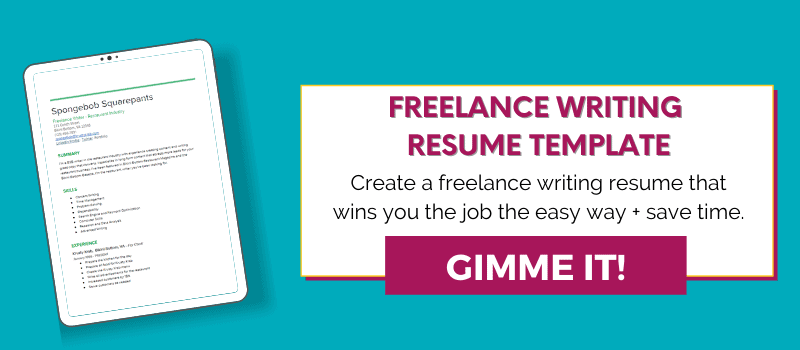
The Fear of Rejection
Many people can’t get over the fear of rejection to even attempt a freelance writing career. Cold pitching to people is probably one of the most frightening aspects of finding new clients. No one likes rejection, and the possibility that many people are going to reject you is downright terrifying.
I was a big chicken when it came to cold emailing a prospective client. I didn’t want to say the wrong thing or look stupid. I took several classes on how to find clients, and it all boiled down to the same thing. You need to put yourself out there.
Pitching does get better over time, and there are plenty of templates available. There are certain ways to write a pitch that make it more likely to be accepted by a client.
You will face rejection, whether it’s in the form of no reply or one that says no. Very few people you reach out to will be mean because they likely sell products or services, so they understand the process.
Once I reframed the potential for rejection, I felt better about looking for clients. Ask yourself, what’s the worst thing they can say? No, right? When you think of it that way, find new clients doesn’t seem so scary.
Send batches of well-written pitches and then follow up in a week if you haven’t heard back from them yet. And don’t just follow up once. Here are some interesting statistics about emailing new prospects.
- 20% of all leads are never followed up
- 80% of non-routine sales occur after at least four follow-ups
- A staggering 92% of people selling things give up after four nos
So, 8 percent of salespeople are getting most of the sales. Keep that in mind.
You can also build your network up over time and form relationships with other people in your niche. The more people you connect with or take courses from the more referrals you may get. When we support each other, we all win. You’ll face fewer rejections when you find clients from referrals too.

The Fear Over Asking Clients to Pay You What You’re Worth
This fear is a difficult one to overcome, and some writers never really do. Many freelance writers think that to compete, they need to keep their prices low otherwise, they risk the chance of not getting any clients.
But if you’re a good writer and can show that you get the results your clients want, then you’ll get more clients. In fact, companies will pay more money for excellent work. So, it should be easy, right?
Well, it’s not truly that easy, and it takes a mindset shift to grow the confidence you need to ask for more money for your work. Plus, when you think you’re the most confident, you’ll run across the possible client that says no to your rates and then what do you do?
Well, it depends on the project and if you are willing to take less to forge a relationship with a company or person that you really want to work with. Or maybe it will significantly expand your audience, or you’ll receive notoriety if you accept it.
Bottom line, you shouldn’t be afraid to negotiate the best price for your work. You are your own boss, and no one else controls your prices but you. The ability to ask for what you’re worth comes with time and experience.
Your Content
What if Clients Don’t Like My Work?
Another valid fear many new writers have. Once you’ve gotten past the fear of rejection and start taking on clients, you may then fear that clients won’t like your work.
There is definitely a level of uncertainty with freelancing. You can lose a good client as quickly as you sign them on. The key is to provide exceptional service to your clients, and even then, you will lose some. It’s just part of freelancing.
Here are some things you can do if you’re afraid of losing clients because they don’t like your work. Always send your best samples of work to prospective clients and make sure you really understand what their expectations are.
Once you start writing for them, if you don’t hear from them, check in to see if they have any feedback for you. If they have suggestions or constructive criticism, try not to take it personally. It’s just business, and you should apply their advice the best way you can.
I’ve never had a client ghost on me before. Most people want to make sure they get what they paid for, so they don’t typically disappear. Just make sure to stay in regular contact with anyone you write for so you can make sure everything is okay.
Also, remember that losing a client doesn’t necessarily mean that you did anything wrong. They may not need your services any longer or change directions with their business. Sometimes personalities clash, or business relationships just don’t work.
Some clients may ask for unrealistic requests that go beyond your agreement. That’s why it’s critical to establish expectations early on. Sometimes the best way to proceed is simply to cut ties.

Fear that You Don’t Have Enough Experience to Be a Freelance Writer
This fear is another big one, and I definitely feared this. Yeah, I could write well, but my experience came from academic work, and there’s a HUGE difference between writing college papers and online blog articles.
I cringed at the thought of using contractions, and it was hard as hell to write a one-sentence paragraph.
Ha, I did it! That still traumatizes me to do and flies in the face of everything that I was taught. It’s only been in the last six months that I could even bring myself to do it.
When I started, I wasn’t sure what anchor text to hyperlink or even how to cite sources. If you’ve read many of my blog posts, you’ll hear about my first dreadful writing job from Upwork. The guy was really cool just cheap and told me I’d never make more than $0.05 a word. Man, did I destroy that untruth.
And then there’s active voice. Many people don’t even realize who much cleaner and clearer your writing is when you use active voice. It certainly took getting used to.
My whole point is that everyone starts as a beginning online writer even if you have an education behind you. You may not be able to command high rates until you learn your craft, and I was okay making less and gaining experience.
Don’t fret there is always plenty of work to go around. Continue building up your portfolio with high-quality samples or real work. Yep, you can totally create samples for your portfolio when you have no experience in the beginning.

The Fear of Turning Down Work
Turning down work? You’re wondering, “why would I say no to a client?” Well, there are many reasons. They may not be the right fit; they may not want to pay your worth; you may already have too much work or many other scenarios.
Sometimes you just can’t take on any more work because you’re already at the burn out stage. I’ve been there! You need to look at your current base of clients and compare them to the new potential client.
For example, you already have a full workload, but your dream client comes along, AND they’ll pay you more. Look at your other clients and determine if there are any you can get rid of to onboard the new one. Your goal should always be to get higher-paying clients, and that means you need to tell one client that it’s time to go.
Now don’t break contracts or renege on promises because that’s not cool. You should always fulfill your obligations and do the best work you can. You never know when you may need a former client in the future, so don’t burn any bridges.
One thing to always be aware of is how fast you can complete projects, so you know if timeframes are doable. The worst thing you can do is fail to prepare and blow a major assignment because publications and clients will blacklist you, but they won’t if you say no. Never over-commit.
If you do good work consistently, you’ll find the right clients when you need them.
The Fear of Not Being Good Enough or Being Able to Produce High-Quality Work Consistently
What if you find a good client and you can’t follow through with the projects or your quality is subpar or you can’t maintain consistent quality? You may wonder if you can produce the articles you need to or what if you run out of content ideas or they’re not good enough?
It’s a genuine fear, but you don’t want it to turn it into a self-fulfilling prophecy, yikes! In the beginning, try only to take on a few writing projects at a time until you’re sure you can reproduce the same quality of work over and over again.
Also, commit to due dates that are comfortable for you and don’t try to finish things too quickly because your quality of work may suffer.
PRO TIP: Use an app like Toggl to track how long it takes you to finish a writing project. You can stop and start the timer as many times as you need to but track how long it takes you to do everything necessary to complete the project, such as research, writing, and editing.
It’s also a good idea to wait at least a couple of hours before trying to edit your writing. I usually wait until the next day to edit my blog articles because then you’re more likely to see any mistakes when you have fresh eyes.
Overcome the Fear of Not Being Able to Pay Your Bills
Never become complacent as a writer. It’s easy to think after you’ve built up your career that it’s smooth sailing forever. You must always plan for that day in the future when you lose a client, or something unexpected happens like the COVID-19 pandemic. No one could forecast when or where something like this would happen.
Or a client may refuse to pay you or back out of a contract after you’ve already started working on the project. If you don’t have a written freelance contract like the one my lawyer friend Amira sells over at aselfguru.com, it can financially devastate you. It’s a small price to pay to protect you as a freelancer.
So, set up an emergency fund to help you pay the bills if something unexpected happens. It’s a good idea to have some money stashed back before you start working as a freelance writer since it can be hard to find clients in the beginning.
You can also ask clients to pay for half of the work upfront. This solution is a common practice in freelance writing and blogging businesses.
Additional Tips on How to Overcome Your Freelance Writing Fears
While there’s no way to completely eliminate any fears associated with being a freelance writing business owner, you can certainly keep some fears at bay.
None of Us Are Born as Experts
Understand that no one is born as an expert. Some writers work for years and still don’t feel like experts. Choose the skill that you want to improve and increase your expertise a little at a time.
The good thing is that clients don’t care what your level of expertise is as long as you can produce results. If you write blog articles for them, they want to know if you can write high-quality articles, get more potential leads, and grow their following.
Fake It ‘Till You Make It
I’m sure you’ve heard that phrase before, and it works. If you lack confidence, you don’t want potential clients to know it. So, you have no other choice but to fake it.
How do you do that? Copy the movements of a confident person. Smile and straighten your posture before client phone calls. I also heard somewhere along the way that people can tell whether or not you’re smiling over the phone, so just smile, okay?
Think of your past successes. I actually keep a file that has nice things clients or other people have said about my work, and if I’m feeling down or I have a client call, I read them to feel more confident. It helps me reduce anxiety and know that I’m a badass.
Also, choose writing projects that you’re good at. Don’t choose something you suck at doing. I personally only write on things I’m good at. That’s not to say that you can’t try new things; just don’t advertise that all you do are case studies if you suck at them.

Use Fear as a Motivator
Use fear as a motivational tool. If your afraid inexperience is your downfall, then make sure you work on getting plenty of experience so that you feel more comfortable with your writing skills. Find a mentor you respect and learn from them. The more you write, the better you write. I write every single day and have for three years now. EVERY. DAY.
Look at Fear Logically
I look at most things logically, and I think that’s because of my background in law enforcement since everything is evidence-based. Stop those thoughts of fear using logical thinking, so they don’t grow out of control.
Looking at your fear logically allows you to come up with ideas to beat that fear. If you’re afraid you won’t be able to pay your bills, start saving money before you quit your day job. If you don’t have any experience, start writing 1,000 words a day and build up to more. That helps you become a better writer and get some experience.
Take Time for You
It’s incredibly important to take time for yourself. Spend time doing things you love doing with family and friends. Get a massage or going on a hike with your dog. When you work from home, self-care is vital to your success, and it staves off burnout. It’s incredible how some you-time reduces stress.
Final Thoughts of Fear of Freelance Writing
Keep these ways to overcome your freelance writing fears in mind throughout your writing journey. Remember that everyone has fears and faces rejection or failure; it’s how you respond to those fears that matters.
If you’re not pushing the limit of your fears, then you’re probably not pushing yourself enough. It’s when we challenge those freelance writing fears that truly magically and rewarding things happen.
Related Posts to Fear of Freelance Writing
Related: 8 Ways to Deal with Rejection as a Writer That Will Make You Stronger
Related: How to Build Your First Freelance Writing Website in 6 Easy Steps
Related: Mastering Your Mindset: 9 Effective Ways to Master Your Mindset as a Freelance Writer
Related: 13 of the Best Books on Freelance Writing and Business That Will Make You a Success
Related: The Best Laptops for Writers This Year
Now you have the resources to overcome your fears of freelance writing!



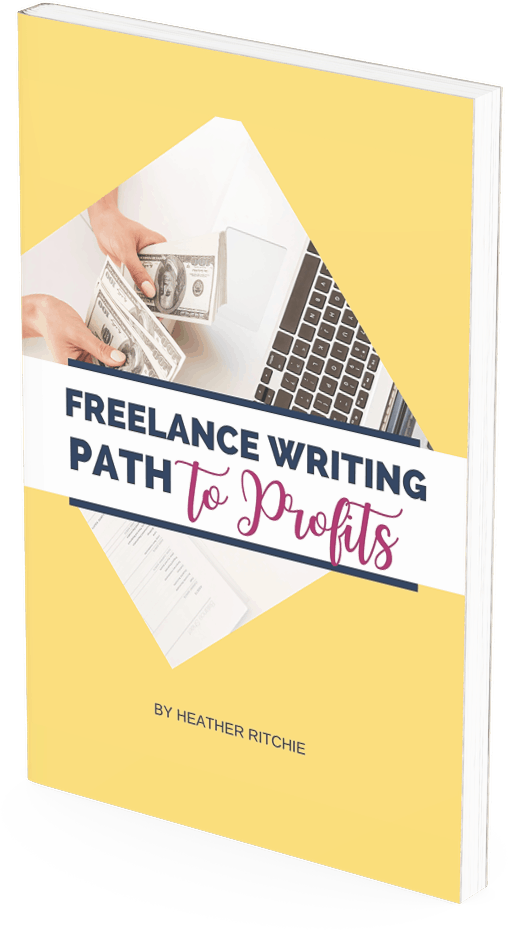
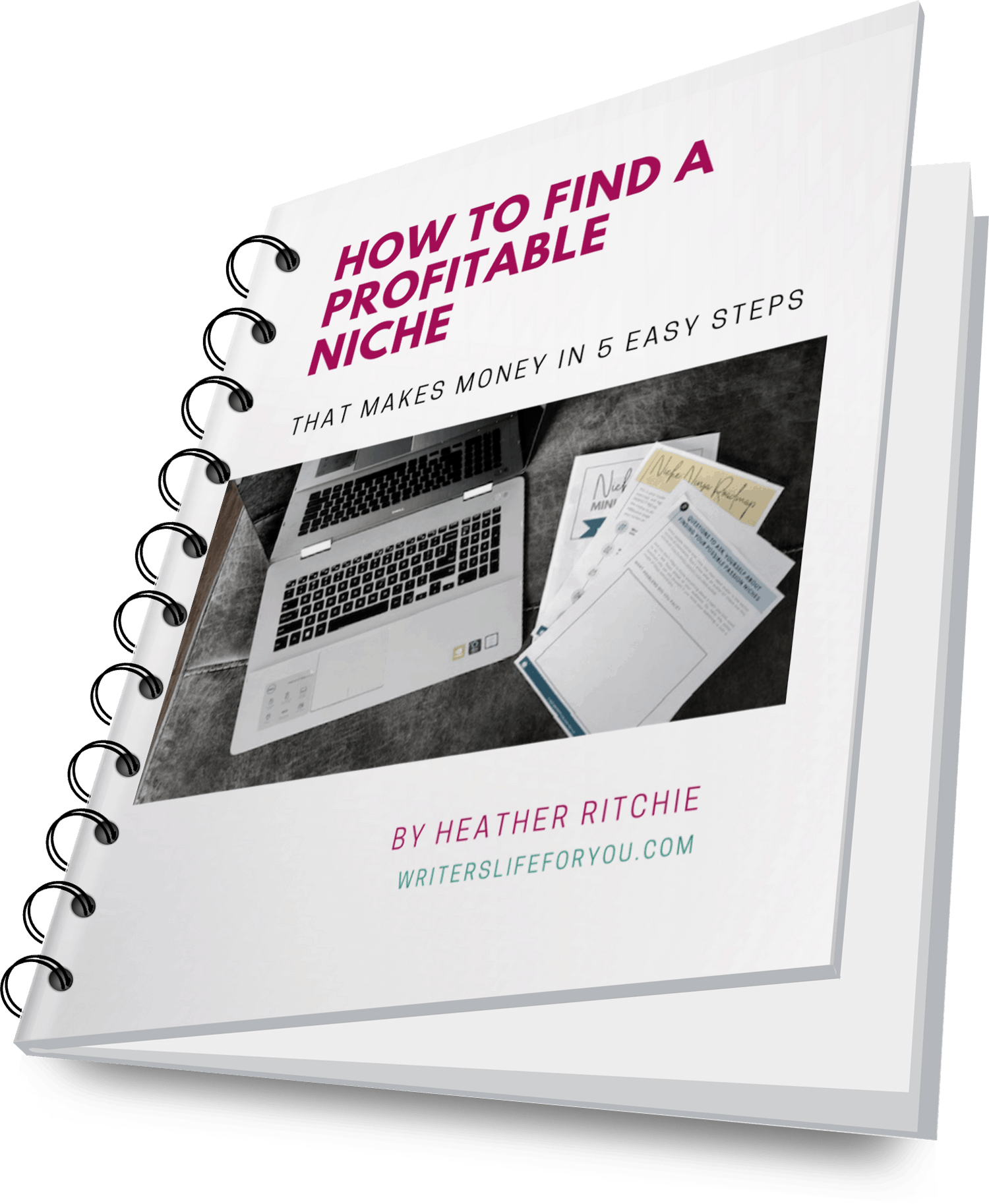


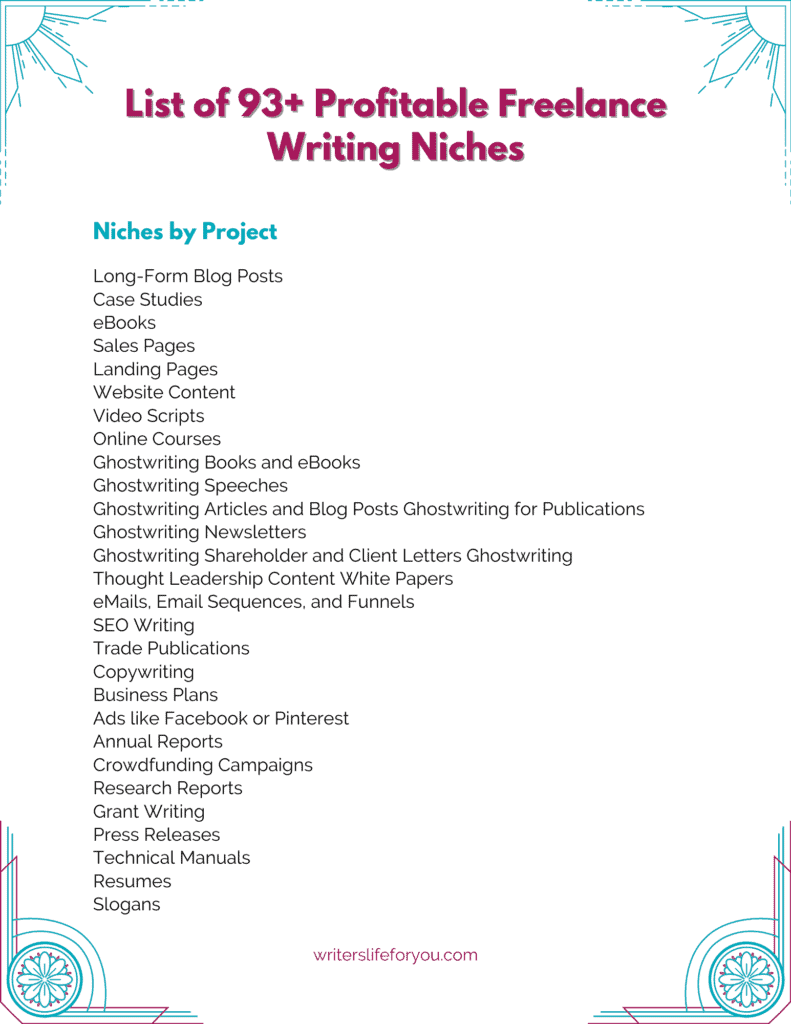
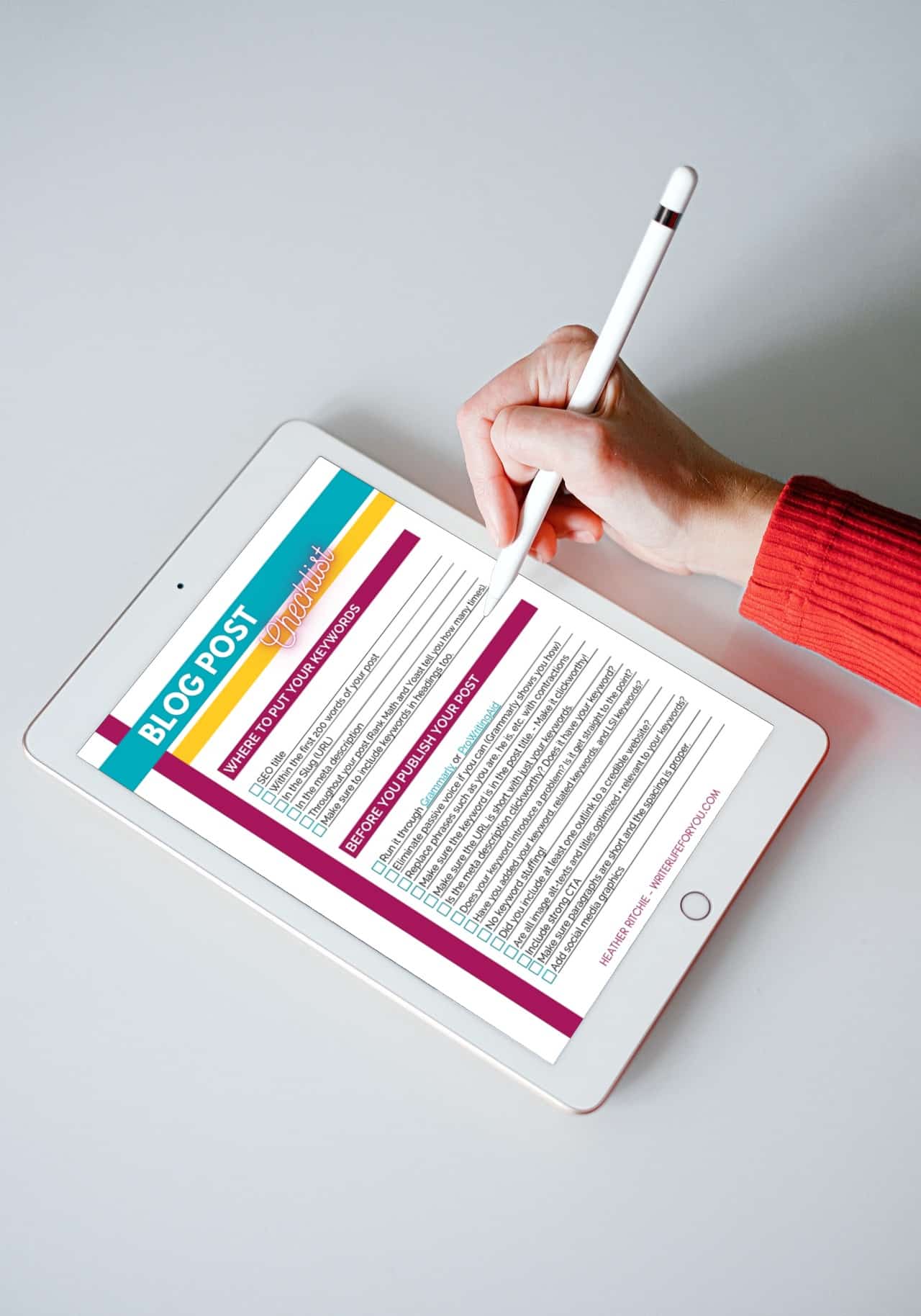

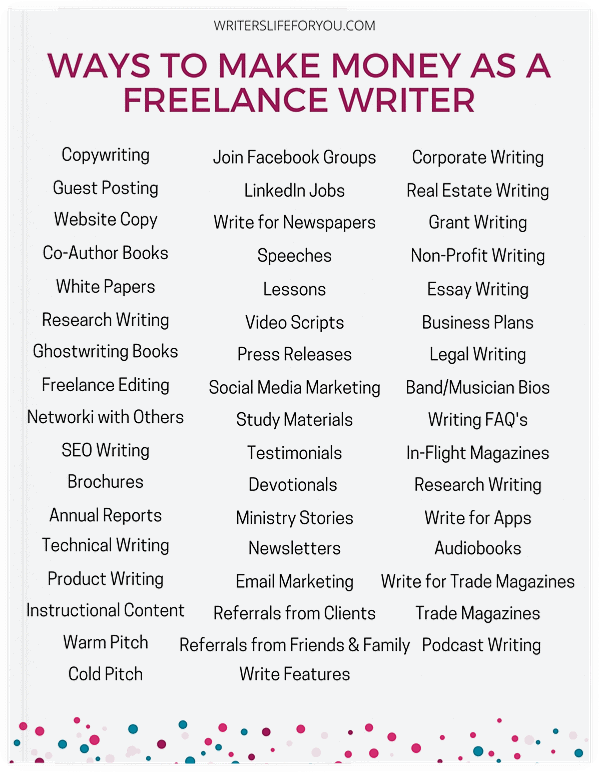
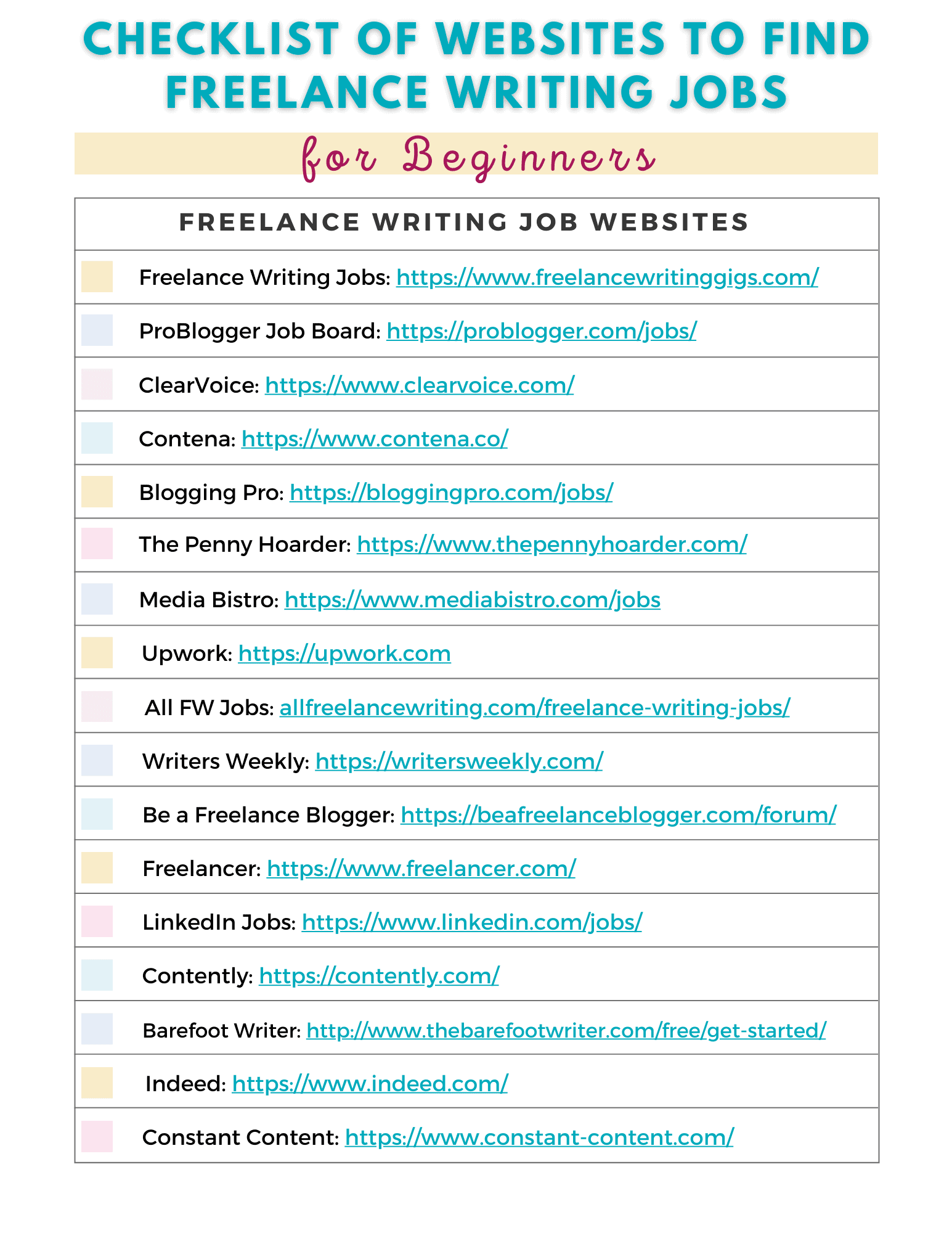
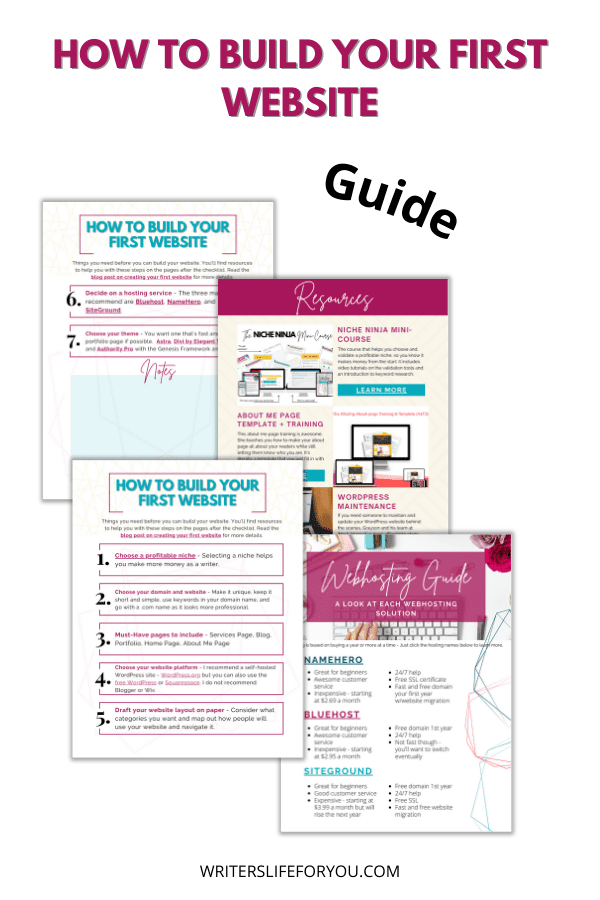

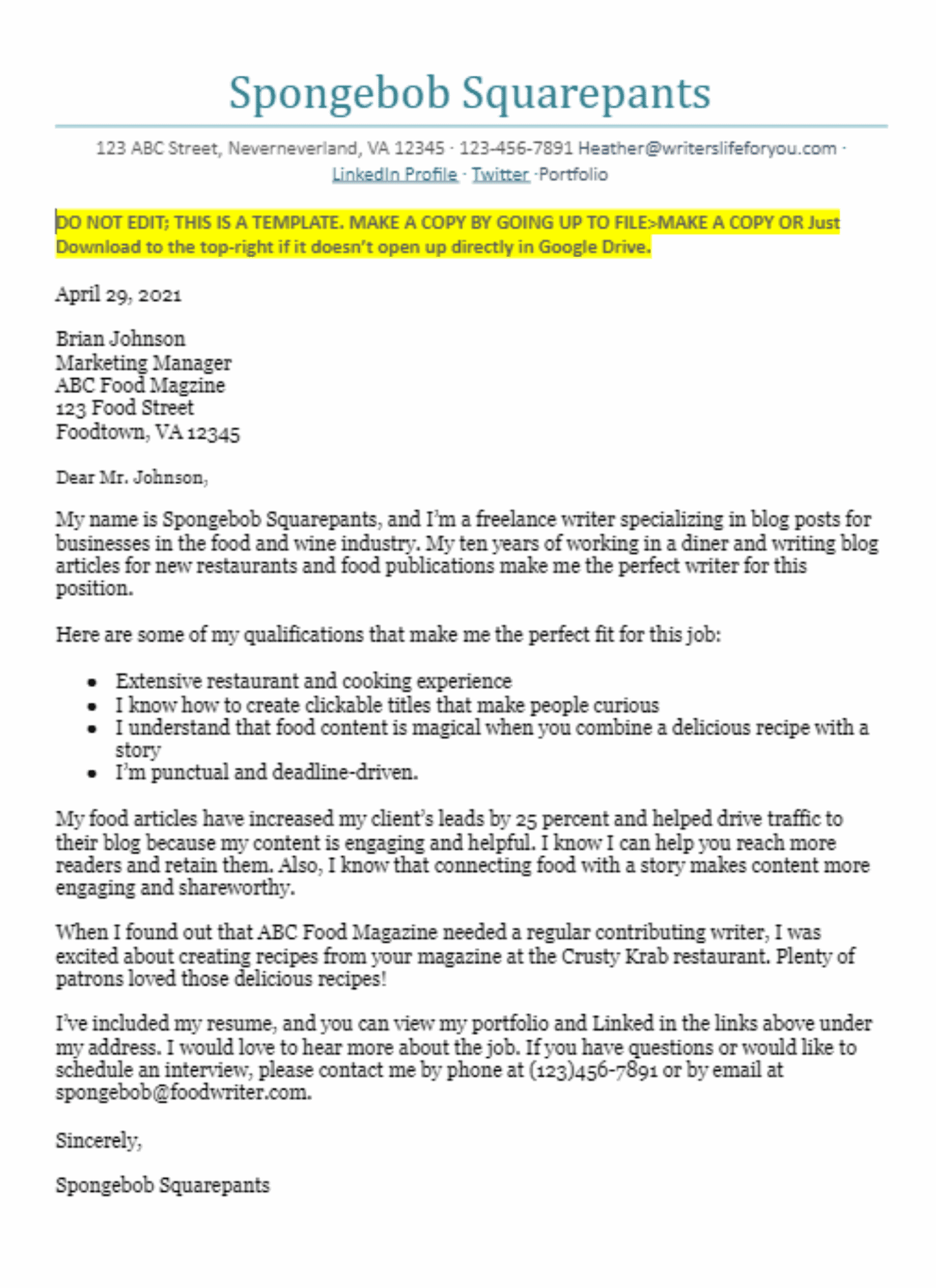


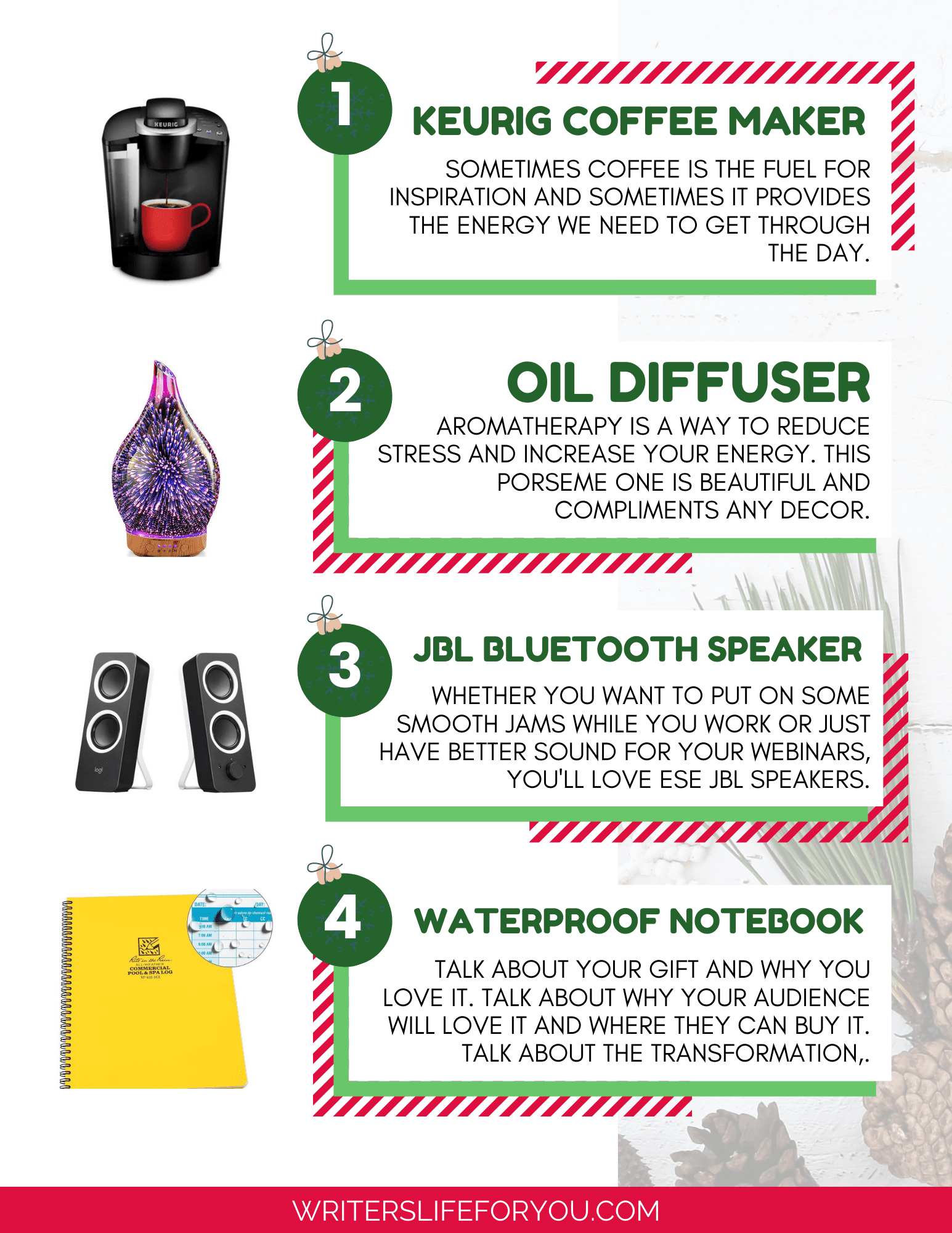
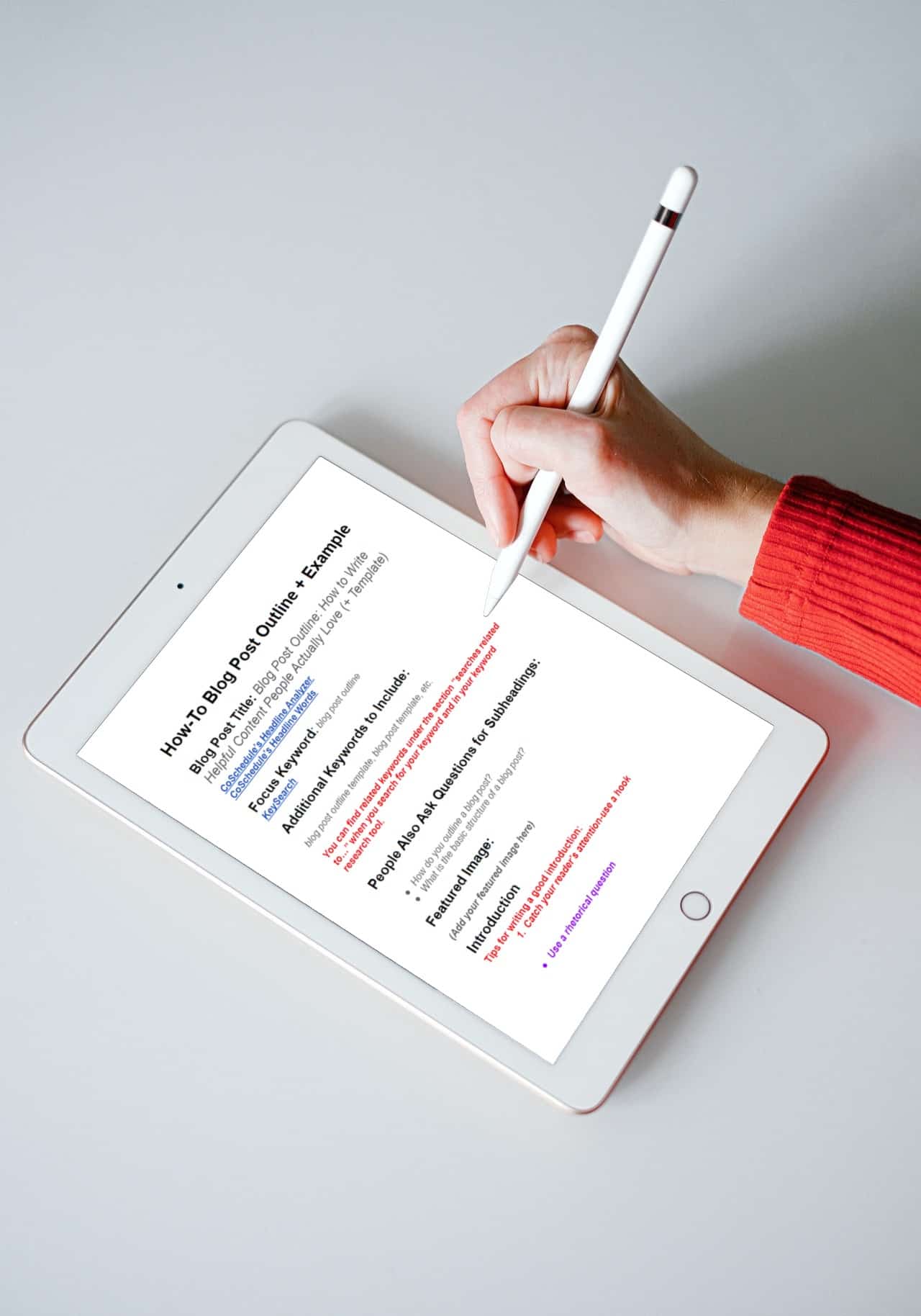




Haha I’ve been thinking about this for a while… and yup, you’re right. Those are definitely some of my fears along with the fact that I would need to do that plus my blog plus my day job. But thanks so much for sharing this, I needed to hear it!
Man you have a lot on your plate! I admire that. I think they are common fears for many of us and we just don’t talk about it. The funny thing is I rushed head on into danger as a cop and then let the fear of rejection hold me back some when I first started writing!
I loved this! I totally needed to read this. I definitely hold myself back when it comes to branching out and working as a freelance writer. But I loved the quote you shared “Doubt kills more dreams than failure ever will”. It’s SO TRUE! Thanks for the motivational article!
Awwww thank you! I’m glad it helped. So, many of us go through this and I know that if I don’t feel a little fear, my goal is not gutsy enough!
I cannot relate to this on many levels despite not actually being a freelance writer. But I might pursue this now that I have learned what the right mentality is needed from this article
Great! I hope you push through any fears you have for career or other aspects of life. It applies to many!
This post listed every single fear I have as a freelance writer. It took me forever to set up my linkedIn profile for this very reason. Fear, lack of confidence and self-doubt can cause you to procrastinate. I love the steps you gave of how to use your fears to your advantage. Great post.
Thank you and I’ve read your stuff You ARE a great writer! You always provide amazing help. Those fears can be crippling and that’s why it took me a while too. That and the legal side of blogging. If I hadn’t found Amira and her legal templates I would probably still be waiting to start blogging. Using my fears to my advantage was the best way through the fear.
I was thinking about this just last night. I know I love to write. I just need to get out there and do it.
Wow what a great article! I know I have let fear stop me a lot. I keep saying I am not a writer. I know I need to stop saying that but… I just got to stop. Thanks for the motivation.
I had the same problem too! Feeling like an imposter sucks but you’re awesome and have great things to show the world!! Thanks for the compliment!
I started freelancing in 2015. I can definitely relate to this. I still encounter these fears until now. But sometimes, my only motivation is not having enough money coming in. Excellent post.
I was thinking about this just last night. I know I love to write. I just need to get out there and do it.
There’s a whole lot of wisdom in this post, especially for aspiring freelance writers. It’s also fascinating that we come across very similar “what-ifs” in other areas of our lives. I guess, the only antidote to fear is to just do it anyway, right? Taking a page from Susan Jeffers’ book… Anyway, great post, Heather! Thanks so much for sharing 🙂
Pingback: 7 Ways to Become a Genius in Your Freelance Writing Niche
Pingback: 12 Ultimate Gift Ideas for Aspiring Writers on Father's Day